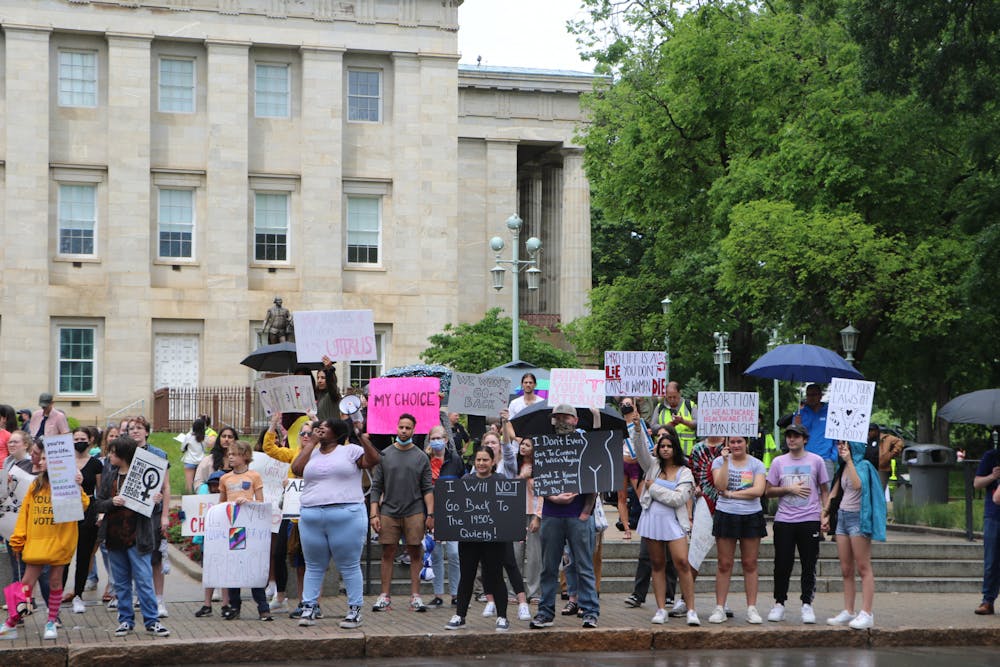Following three months of deliberation, U.S. District Judge Catherine Eagles granted an injunction Saturday to temporarily block two provisions of North Carolina’s newly-enacted 12-week abortion ban from taking effect.
The ban was filed as Senate Bill 20 in May and went into effect July 1.
The injunction affects only two specific provisions of the bill — one that instructs doctors to document pregnancies before prescribing pregnancy-ending medication and the other that requires abortions performed after 12 weeks of pregnancy to take place in hospitals.
All other restrictions enacted in the Care for Women, Children and Families Act remain intact.
Beverly Gray, Duke associate professor of obstetrics and gynecology, and Jenny Black, CEO of Planned Parenthood South Atlantic, applauded the court’s decision. Gray and Black filed an initial lawsuit against the law in June, which initially failed after several issues with the law were resolved by last-minute changes.
In their suit, the plaintiffs claimed that both the hospitalization and pregnancy documentation provisions of the Care for Women, Children and Families Act were opaque and difficult to account for.
The plaintiffs contended that mandating documentation of a pregnancy for medical abortions poses complications for the patients, stating that ultrasounds often do not register the signs of an embryo during the first 12 weeks of pregnancy. Under this provision, the plaintiffs also argued that abortion service providers would be unduly penalized for failing to provide adequate documentation.
Eagles agreed, contending that the provision would “implicitly ban” abortions during the 12-week period by deterring doctors from administering them.
Gray and PPSA also fought the provision requiring abortions performed after 12 weeks of pregnancy to take place in hospitals, arguing that miscarriage operations aren’t subjected to the rule despite procedural similarities.
Eagles echoed this claim, concluding that there is “no rational basis for this differing treatment.”
Some pro-life advocates believe that Eagles’ decision will undermine the safety of patients undergoing both procedural and medication abortions.
“True to form, [the plaintiffs] are now challenging the requirements that the doctor determine the location of the unborn child before dispensing chemical abortion pills and that 2nd and 3rd trimester surgical abortion must occur in a hospital,” said Tami Fitzgerald, executive director of the pro-life North Carolina Values Coalition.
Gray framed Eagles’ decision as merely a preliminary step towards attaining reproductive healthcare autonomy for North Carolinian patients. Her decision is unlikely to result in a sweeping overhaul of the 12-week ban policy enacted by Republican legislators in June.
“Despite today’s decision, North Carolina’s 12-week abortion ban has created unnecessary hurdles to obtain care, with providers across the state scrambling to support pregnant women who now face the nightmare of government-imposed forced pregnancy,” Gray said.
Get The Chronicle straight to your inbox
Signup for our weekly newsletter. Cancel at any time.
Halle Friedman is a Trinity senior and an associate news editor of The Chronicle's 119th volume.

